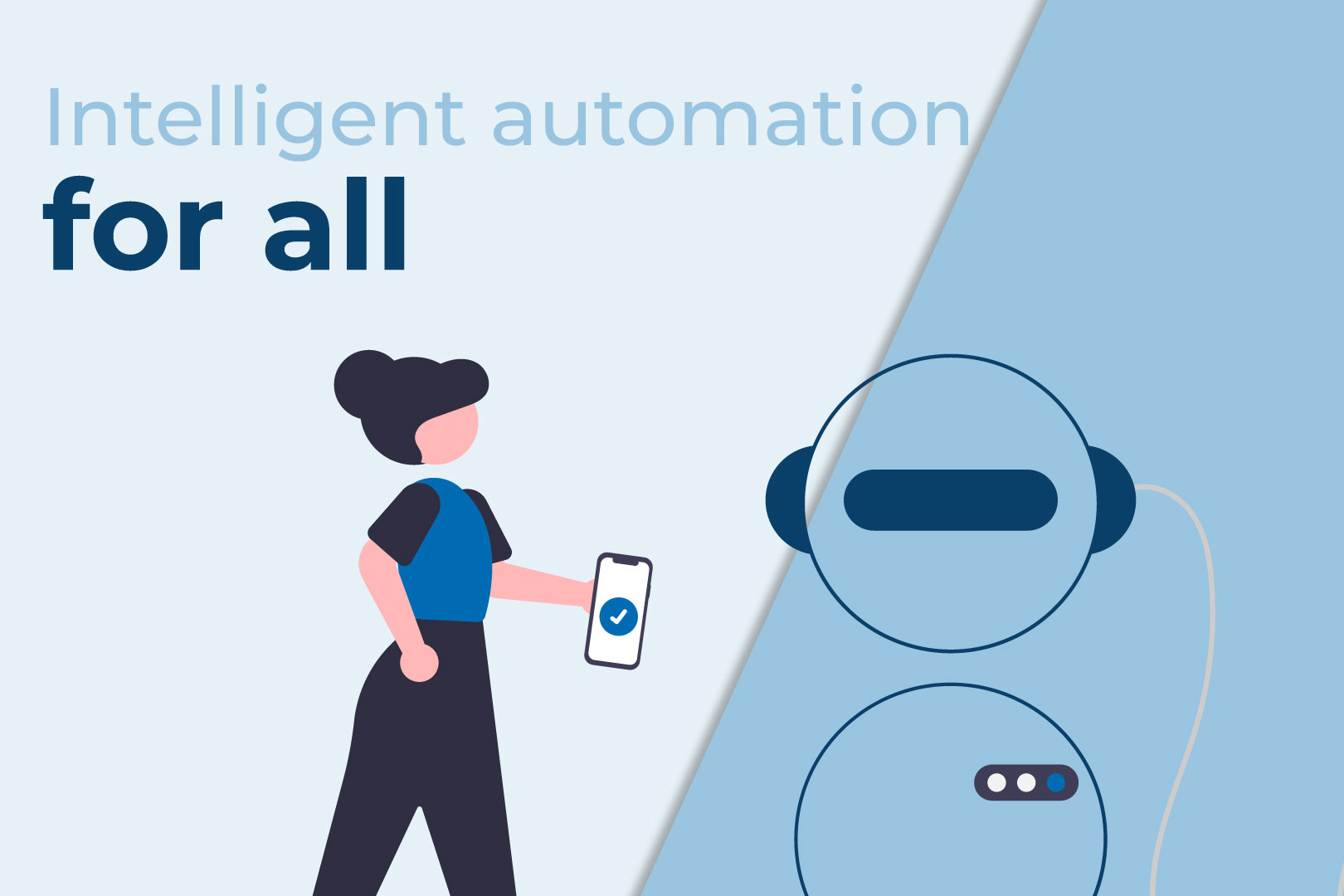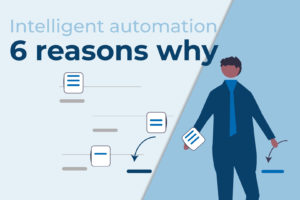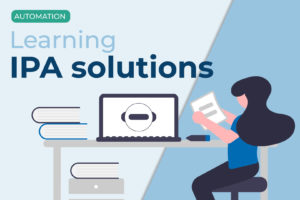Introduction
Automation has become an integral part of modern business, and its significance cannot be overstated. With the evident benefits of enhanced efficiency and reduced human errors, automation provides companies with a competitive advantage in today’s fast-paced world. It facilitates more streamlined operations, enabling organizations to function with greater speed and flexibility. Automation empowers businesses to allocate their human resources to tasks that demand creativity, problem-solving, and strategic thinking.
According to a recent study that compares the performance of IA with RPA alone and identifies the best practices and challenges of Intelligent Automation (IA) adoption. IA can deliver 4x more return on investment (ROI) than RPA. Additionally, it can reduce the payback period from 15 months to 6 months, due to its ability to overcome the challenges posed by RPA.
Understand more about Intelligent Automation (IA) in the blog.
Organizations are continually seeking innovative solutions to stay competitive and efficient. One such solution that has gained significant traction is Intelligent Process Automation (IPA). It is a transformative technology that has found its application across a wide array of sectors, fundamentally reshaping the way tasks and processes are executed such as:
Client and Vendor Management:
Client, as well as Vendor onboarding, is an important aspect of business operations, as it lays the foundation of future relations and experiences with vendors or clients. This experience can be greatly improved by ensuring a smooth onboarding. Intelligent Automation can significantly help in collecting documents within an ecosystem for easy exchange of documents via EDI, analyzing data from the captured documents, and integrating them with the organization’s system. This ensures that the organization spends less time on onboarding and more time on the actual transactions.
Credit management:
Any organization dealing with multiple customers can greatly benefit from adopting intelligent automation solutions to handle credit facilities more effectively. Automation tools help expedite data extraction from credit applications, financial statements, and credit bureaus, saving time and ensuring data completeness. These solutions also apply established credit best practices to assign risk scores, and limits objectively. Structured workflows guarantee hierarchical approval for vital credit decisions and automate periodic reviews, along with automated email notifications, making correspondence easier. This automation reduces manual workloads and minimizes the potential for errors in credit assessments, ultimately leading to quicker and well-informed decision-making, fortifying profitability.
Accounts Payable:
Intelligent automation transforms the accounts payable process, optimizing functions such as invoice handling, data input, and approvals. It automates data extraction from diverse formats using AI-ML technology, diminishing human error and augmenting precision. This enhancement improves efficiency while also guaranteeing heightened precision and transparency in the accounts payable process, which positively influences the entire financial operation of an enterprise. Some of the processes that can be automated:
- Invoice capturing
- Invoice Approval
- Three-way matching of the invoice, purchase order, and GRN.
- Auto approvals of documents as per pre-defined business rules and more…
Procurement:
Intelligent automation can help optimize the procurement process by preventing duplication and improper data entry into the system. The smart automation system can streamline the flow of data from documents generated and uploaded by different departments, clients, and vendors, and help integrate them appropriately into the system. Some of the activities that can be automated are:
- Automating the comparison of data from multiple quotations for the raised RFQ can be easily done and consolidated using an automated solution.
- Automatically creating and distributing ASNs to clients before shipping the consignment, depending on the expected transportation and delivery date.
- Automatically generating Purchase orders for vendors.
These intelligent systems prove to be handy in cases of generating tallied reports of accounts and reconciling documents like balance sheets.
This overall leads to more efficient accounts payable processes for any business operations.
Analytics and reporting:
In the era where data is everything, organizations can make optimum use of data. An automation platform facilitates swift data analysis and data-centric decision-making, enhancing business capabilities with informed decision-making. Making informed choices in areas like sales, manufacturing, finance, and various operational aspects is crucial for optimizing overall business processes. The B2B sector can benefit by forecasting future sales demands as they often receive repetitive bulk orders as per annual contracts.
Post Sales services:
Any sector dealing with a large client base requires dedicating resources to post-sales activities such as warranty claims, customer service calls, and account management services. These services directly affect the CX and lead to affecting future sales. IPA largely accentuates these services by:
- Providing timely reminders via email to the customer/ vendor for payments and inbound documents.
- Scanning emails containing grievances, retrieving accurate details from the internal system, and sending appropriate replies via email. It can also forward the email to the designated department for taking further action.
- Sending the details and reminders for renewing AMC and other such subscribed services by analyzing the date of issue and other related details in the internal system.
According to an article by McKinsey, the post-sales customer journey was optimized and showed a 20% improvement with the adoption of post-sales automation.
CONCLUSION:
Organizations constantly strive to improve and get the maximum output from their business processes. Intelligent Automation plays a vital role in uplifting business operations. IPA solutions have proven their worth by streamlining and automating operations across industries. As we move forward, Intelligent process automation is set to play an even more pivotal role in enhancing productivity and driving innovation as its use cases continue to expand. So, whether you’re aiming to streamline processes or boost performance, IPA is a powerful ally on the path to success.


